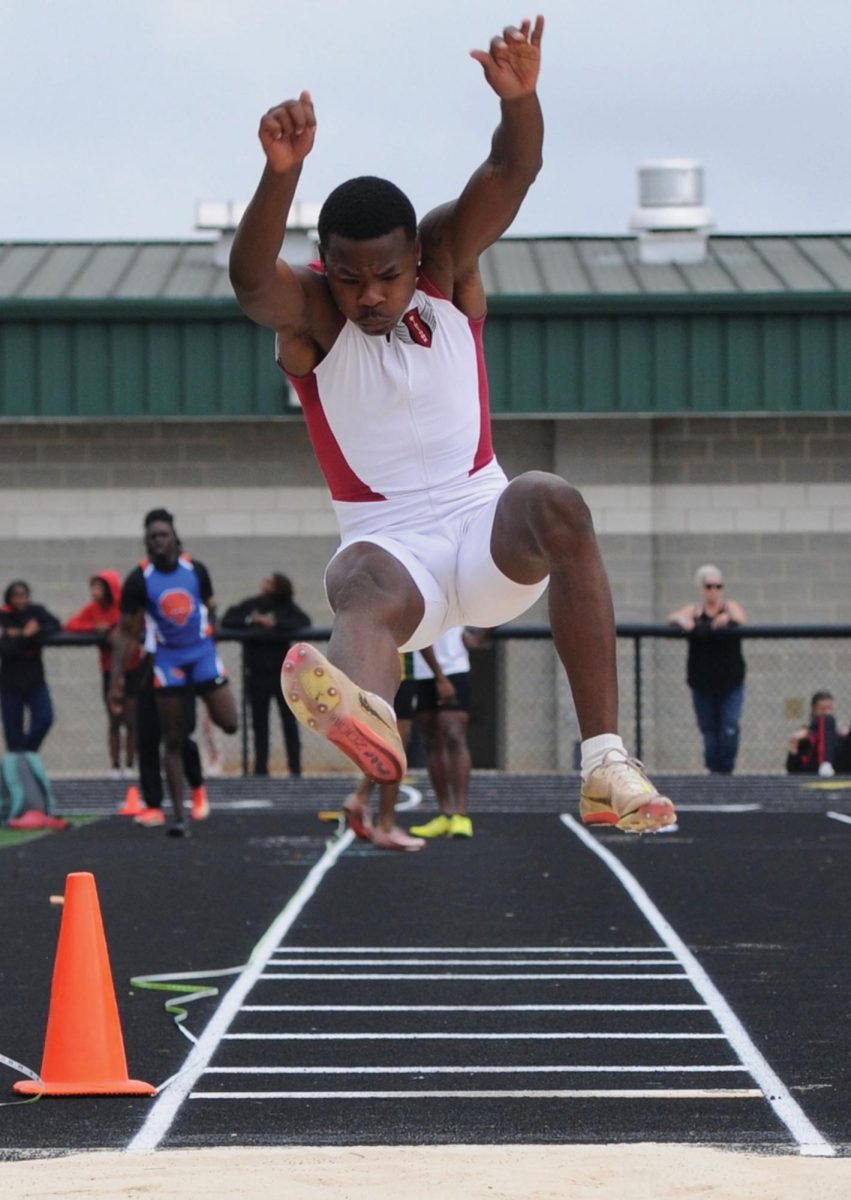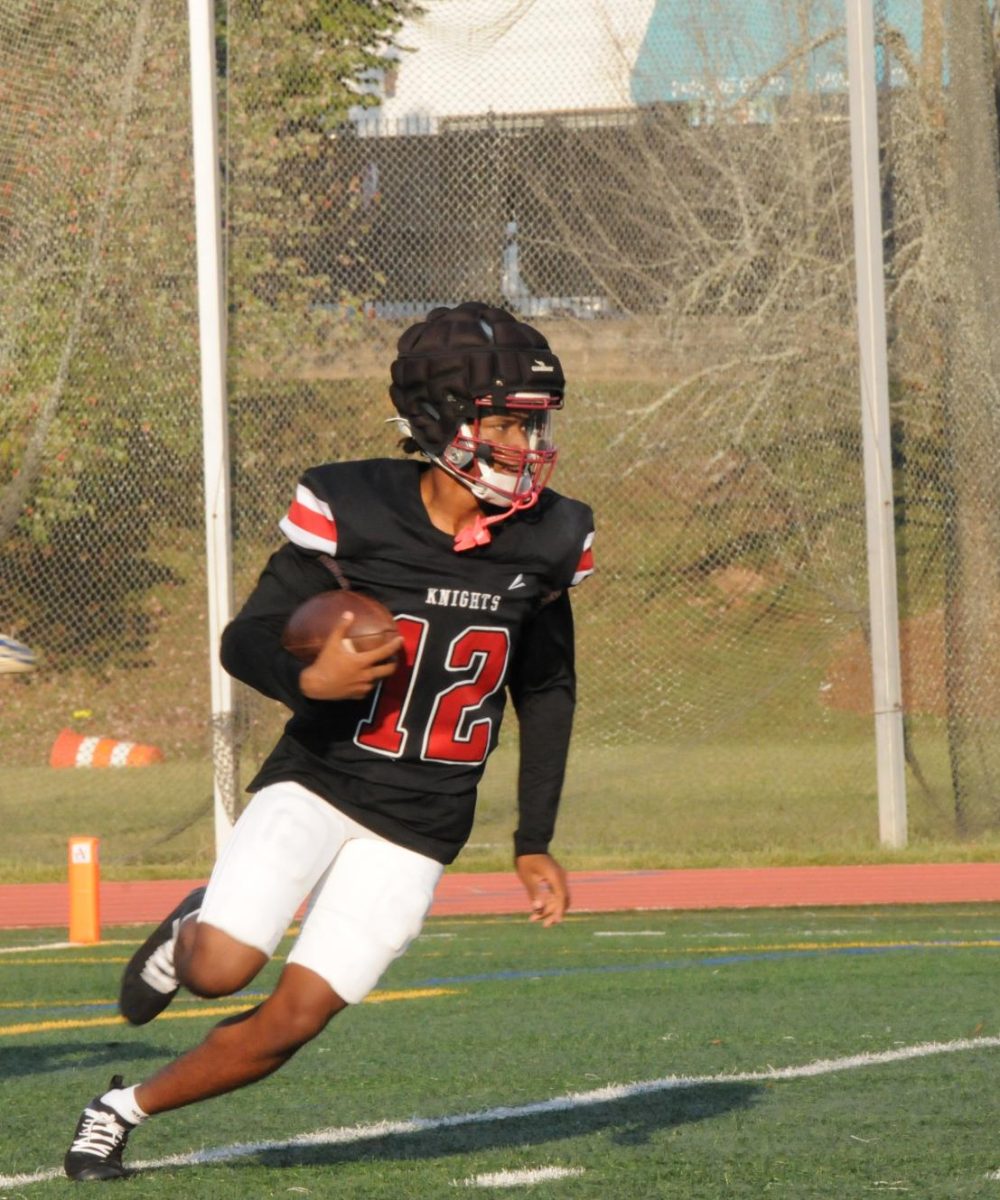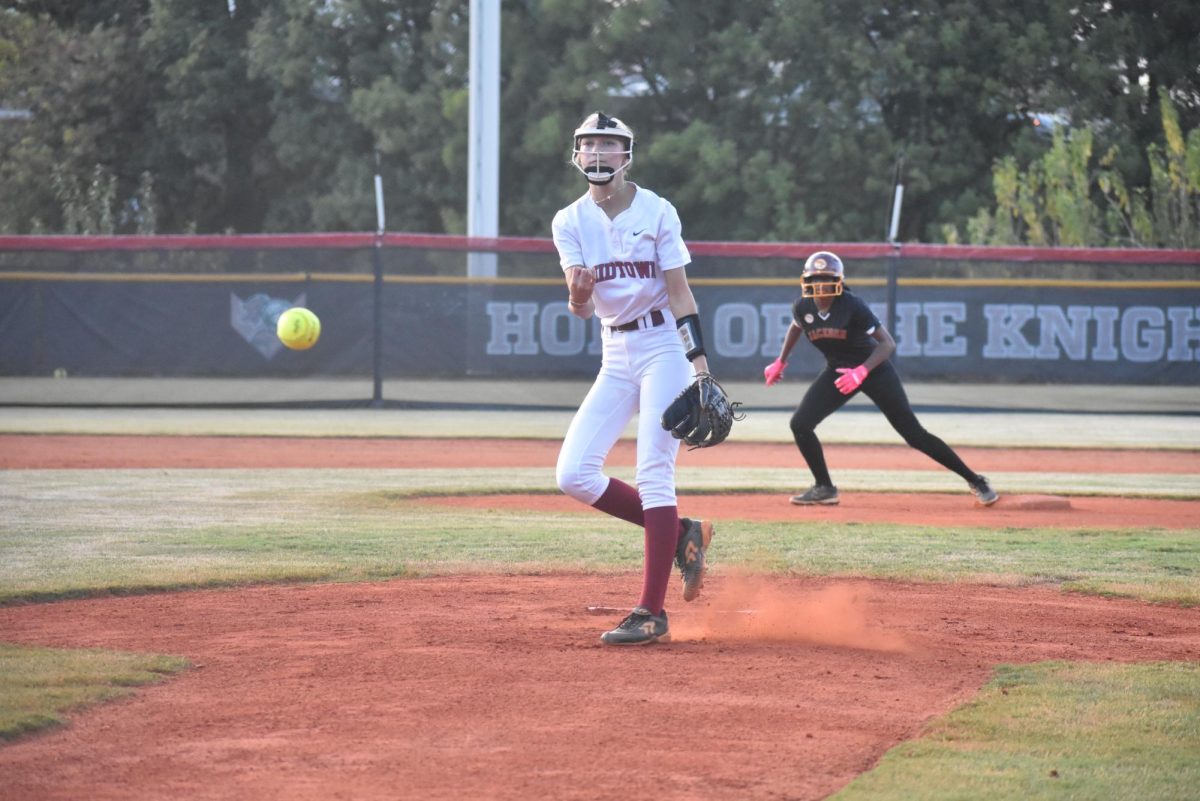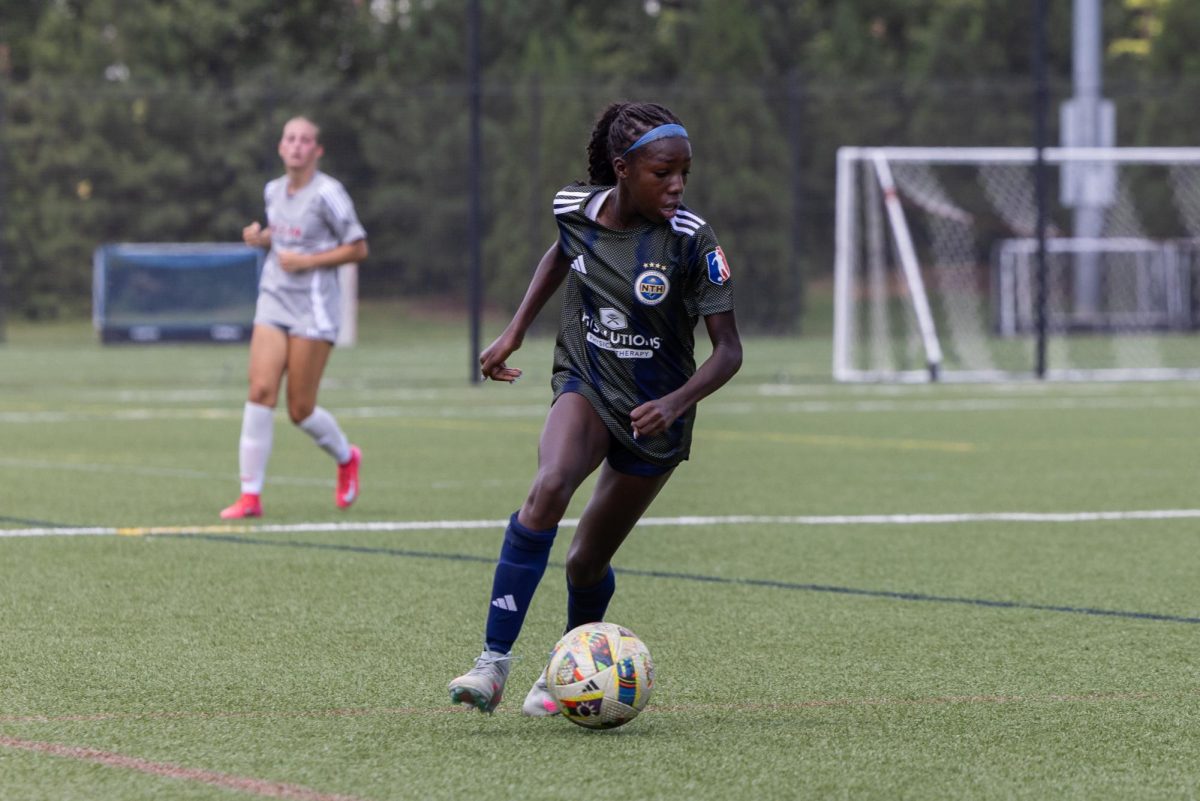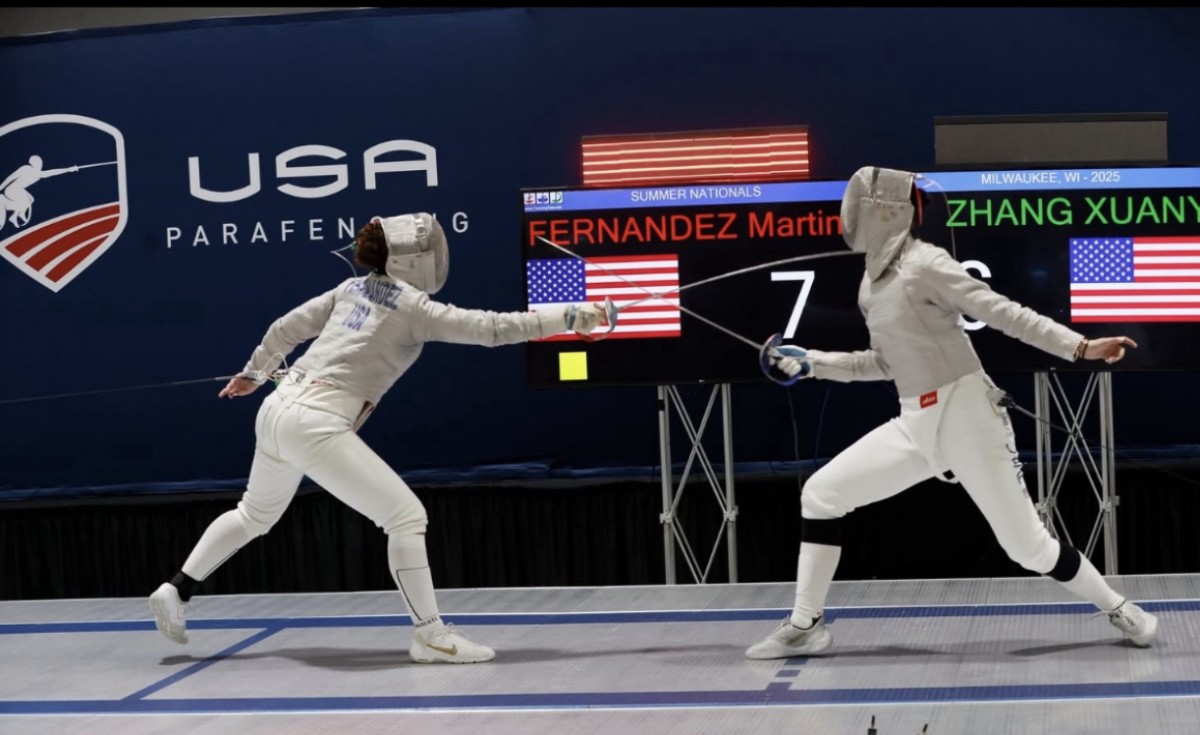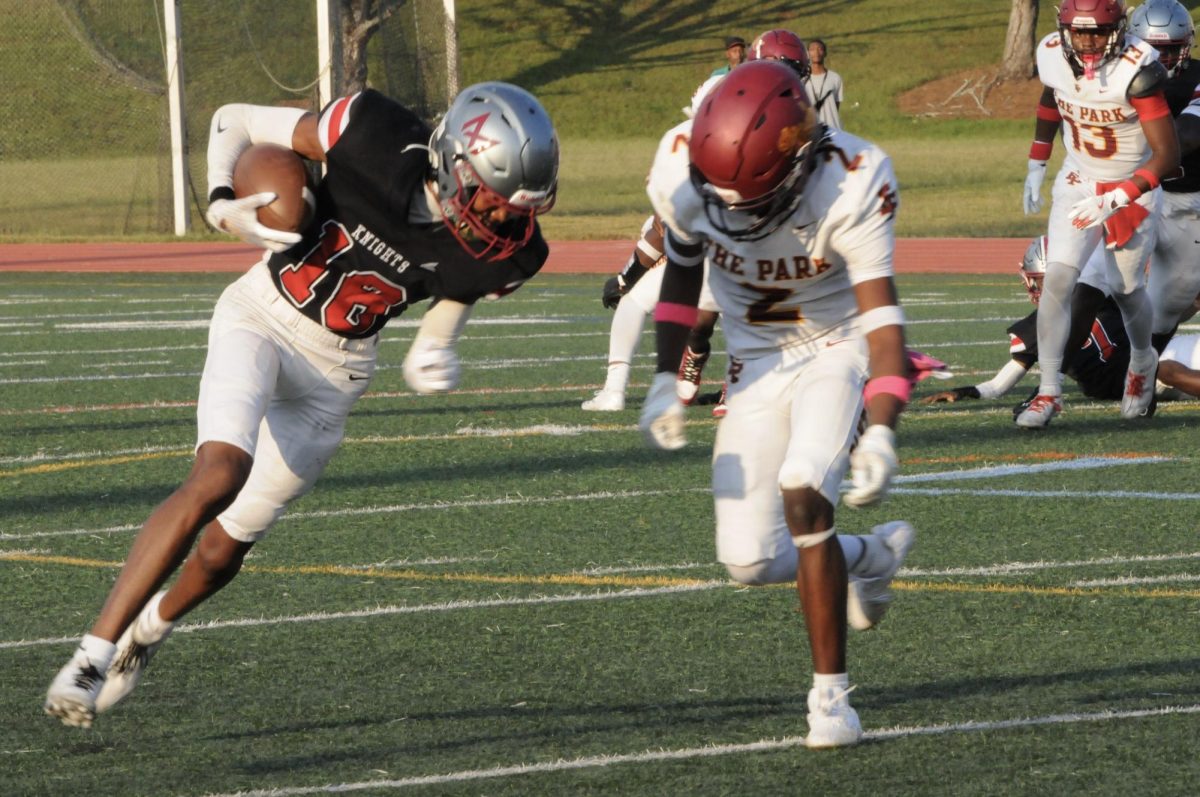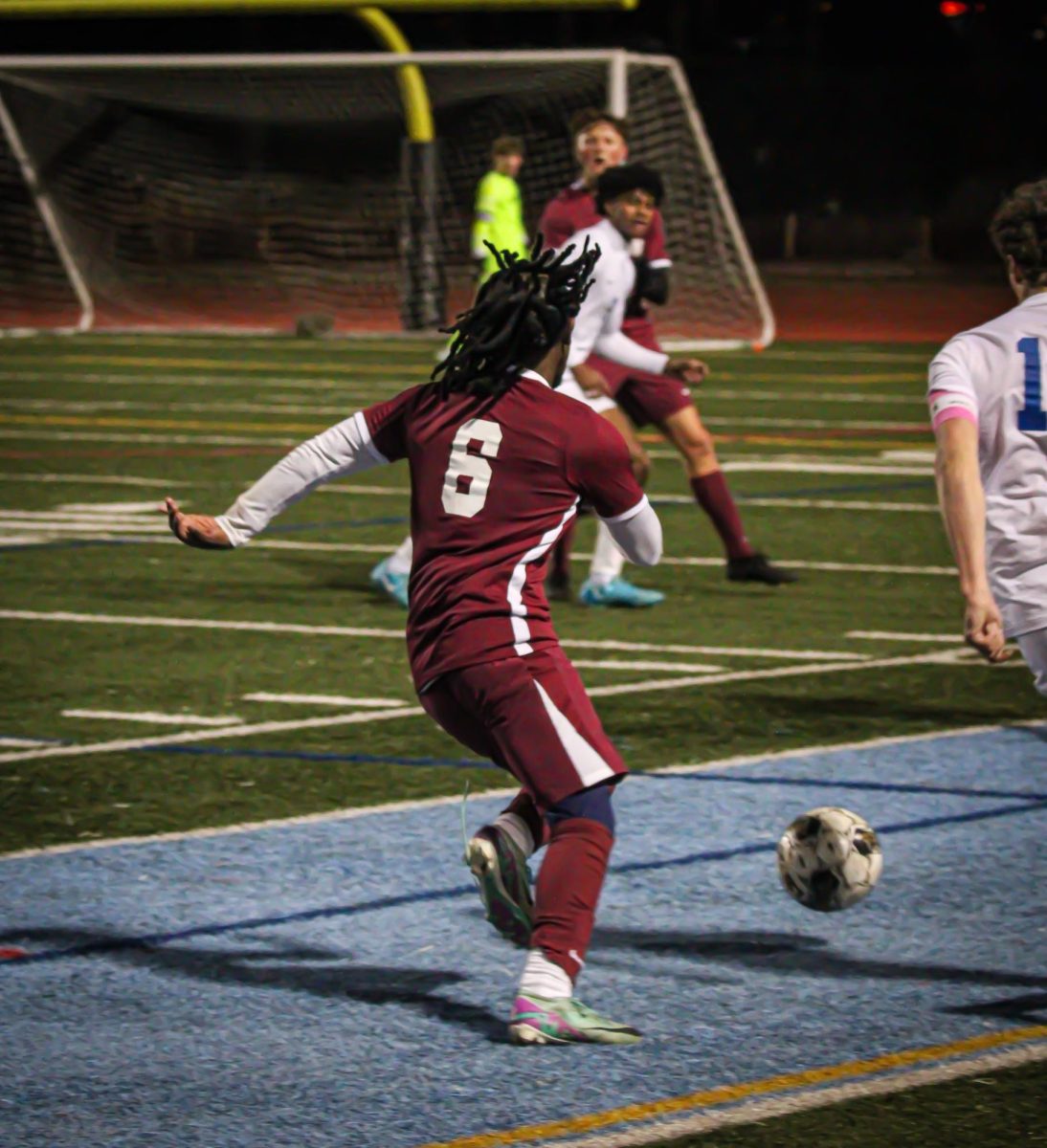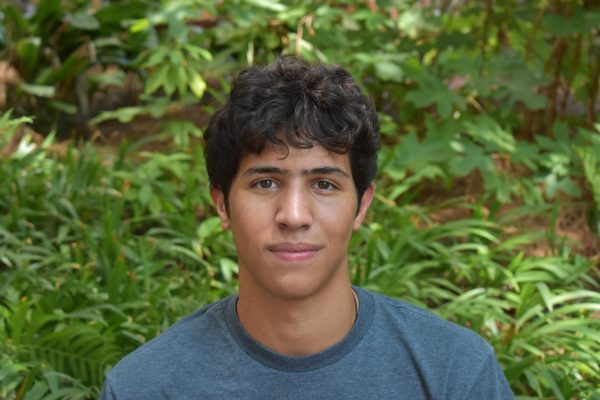The boys track team finished its season with a second-place finish in Region 4-AAAA meet, followed by a 16th-place finish in the Class 4A state meet.
Head coach Del Ellerton said the team will build on its second-place region finish by attempting to restore its winning culture next season and beyond.
“We are reestablishing our identity,” Ellerton said. “I think just letting the athletes see success, because they have a disconnection from the success that we’ve had, goes a long way toward reestablishing a culture of what they’re capable of doing. Even finishing runner-up is a big step, and for the athletes coming back, it gives them a reference point of where they are, but more importantly, it shows them that they are capable of winning.”
Junior Cameron Collier finished second at state in the 3200 meters, shattering his own school record by over 15 seconds with a time of 9:09.96. The time ranks 106th in the country and 3rd overall in Georgia for returning runners, regardless of classification. Collier also finished fourth in the 1600 meters in 4:15.34, just .05 off the school set in 2012 by Zane Coburn. That time ranks 3rd overall in Georgia and 137th nationally for returning runners.
“That was definitely a very good step forward after a couple years of some very hard work,” Collier said. “The season started slow, and most of the season I was trying to get the rust off. It took me a minute to get fully going to where I knew I should have been, so it was nice to finally have that all accumulate at the state meet where it actually mattered.”
Collier goes into the 2025-26 season as the highest-ranked returning runner in the 3200 in Class 4A. Ellerton said that next year, Collier has the potential to set times that could leave a lasting impact on the Midtown record books.
“Coming into next year, he is the number one ranked 3200 runner in our classification,” Ellerton said. “At this point, he is now on an elite level. I think he’s going to run some really amazing times next year. These times now are really fast, but once he leaves, I don’t think the times he runs are going to be touched. If they are, it’s going to be a long, long time before we have another distance runner to run that fast.”
Collier said that improving the mental aspect of his running has been key to his overall improvement.
“The mental [strength] is just as much, if not more important than the physical,” Collier said. “In my head, I need to be able to tell myself that I should be up there. It’s also finding how much I can push myself during the race when all I really want to do is stop. It definitely plays a huge factor, more than a lot of people realize, but I’ve gotten that pretty locked in over the past couple months.”
Senior Kenari Tigner placed highly in the region meet in four very different events: the 110-meter hurdles (second), the 300-meter hurdles (third), the long jump (second) and the pole vault (second). In the state meet, Tigner finished fifth in the long jump and eighth in the 110-meter hurdles. Ellerton said the team had to make a difficult decision over which events to enter Tigner in.
“The way the season plays out, you have to put athletes in events that maximize their talent and give them the best chance to ultimately get to the state meet,” Ellerton said. “It became apparent to us that we did not have consistent relays that looked like they were capable of qualifying for state. I had to make a choice of whether to put Kenari in individual events or to put him on a relay team. I did not want to risk him not being able to qualify by putting him on a relay that potentially could not qualify because of inconsistency with personnel. To give him the best experience, especially in his senior year, I thought the best decision was to put him in four individual events that he was able to qualify for state.”
Tigner said his drive to excel at multiple events could lead him to pursue the decathlon in collegiate track and field.
“I try not to limit myself to being good at just one thing,” Tigner said. “I really try to be the best at everything, so I can make myself better, and I can do it for the team. We have individual events, but at the end of the day, it’s a team sport, so I just try to do what I can do for the team. I plan on doing the decathlon in college. I know it’s going to take a lot, but I’m ready for it.”
At the state meet, Tigner, who finished 5th in the long jump, competed in the pole vault and the 110-meter hurdles simultaneously. This caused him to have to run straight from the pole vault mat to the starting blocks of the hurdles, and then immediately back for more pole vaults.
“It was like a make-it or break-it moment; you either step up to the plate or you sit down with everybody else who isn’t here,” Tigner said. “I was literally going over the bar, and my [110 hurdle] heat was going right then. I had to run right to the line and get into my blocks to run. Then, I had to come all the way back down and go right back to jump.”
Many qualified for region, including senior Cameron Lau in pole vault and junior Akeem Cooper in shotput and discus. Cooper also won region field event athlete of the year. Cooper came into the region meet with multiple athletes predicted to place higher than him based on previous performances. However, he didn’t let that deter him from winning the region in both the discus and the shot put.
“Akeem ended up winning both the shot and the discus, and we didn’t really anticipate that because when we went into the region in discus, there were at least three athletes in front of him, as far as best performances coming in,” Ellerton said. “In the shot put, it just seemed like he came out of nowhere to win that; so, the biggest pleasant surprise was Akeem.”
Cooper said that winning both events was a shock to him, and he believes that his mindset pushed him to victory.
“It was unbelievable and shocking because I wasn’t favored to do anything going into region,” Cooper said. “I believed I could do it, and I talked it into existence. I put forth the energy to win and put my mind to it.”
GHSA pushed back the first practice date for spring sports by nearly three weeks for the 2024-25 season. This limited the time that teams had to prepare for initial meets. Ellerton said this reduction of preparation time contributed to some setbacks for athletes early in the season.
“There were some setbacks earlier in the year,” Ellerton said. “A lot of that had to do with the later start. With the later start and meets still starting at the same time, you had to train athletes to be ready for meets instead of taking time to build some of the base training that would go a long way toward preventing injuries. My preference would be that we started earlier, like we did in the past.”
Atlanta Public Schools KIPP Atlanta Collegiate’s boys and Carver’s girls both won state championships in Class 2A and Washington’s girls and B.E.S.T Academy’s boys finished second in Class 2A and Class 1A. Ellerton said the success of other teams in APS will boost the team’s motivation for success in the future.
“There have been multiple APS schools that won state championships this year,” Ellerton said. “I think just the fact that there’s been so much success within APS may actually impact us next year because [the athletes] all know each other; they went to elementary and middle school together. I think it’s all interconnected because athletes are competitive. They talk to each other, and I think that’s motivating, so I think that the overall success within APS this year is going to spread across other teams.”
Tigner was emotional after the state meets, given that it was his last meet in high school and because he knew the team had more potential than where they placed in the region.
“For myself, the season was good, but for the team, I wish we could have done way better,” Tigner said. “I really wish we could’ve come out with the win. As far as state goes, I got really emotional after every event. I put everything into this sport, so now, as a senior, I won’t get these times back. Saturday was my last run in high school, and it was pretty emotional.”

